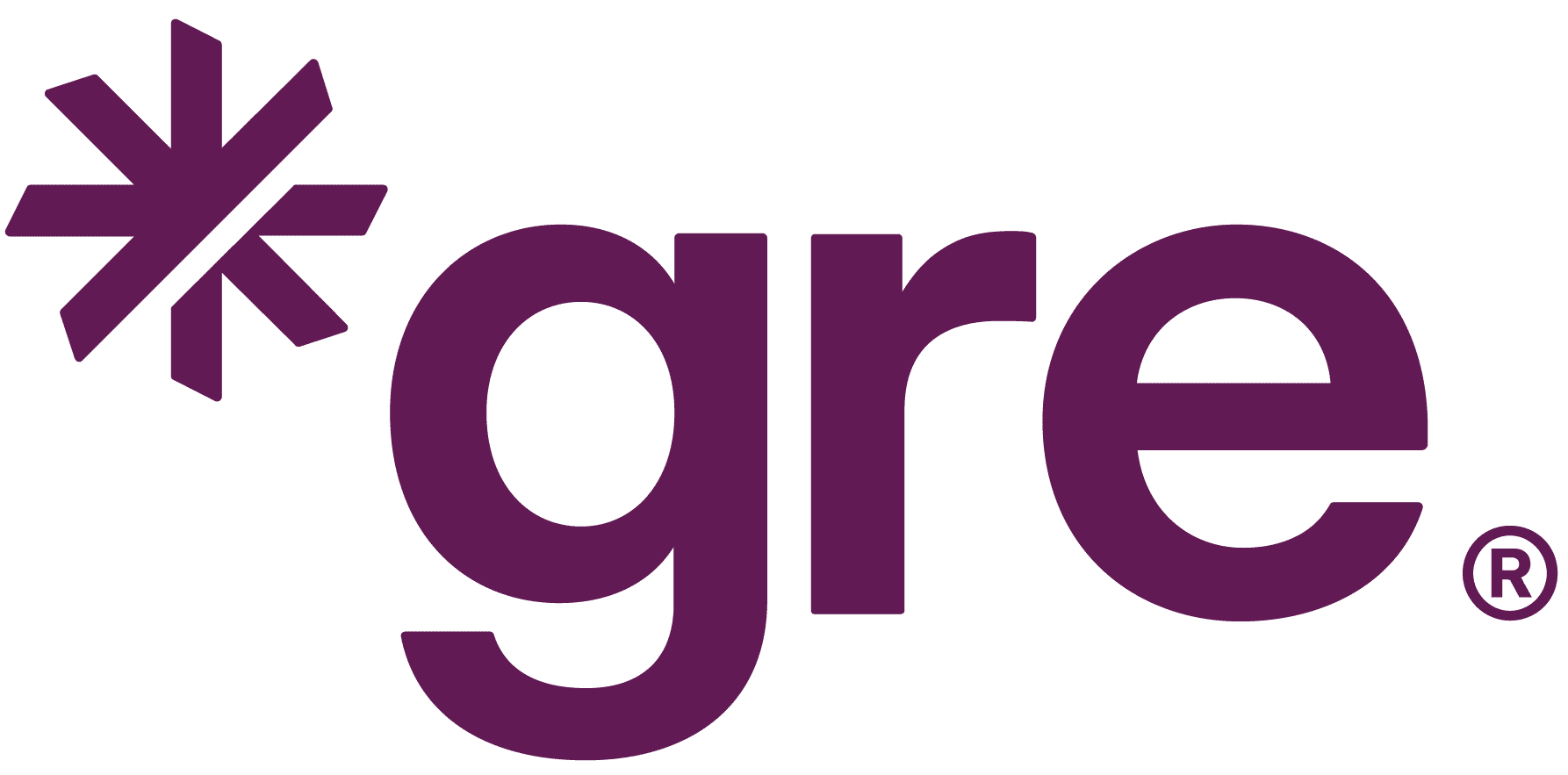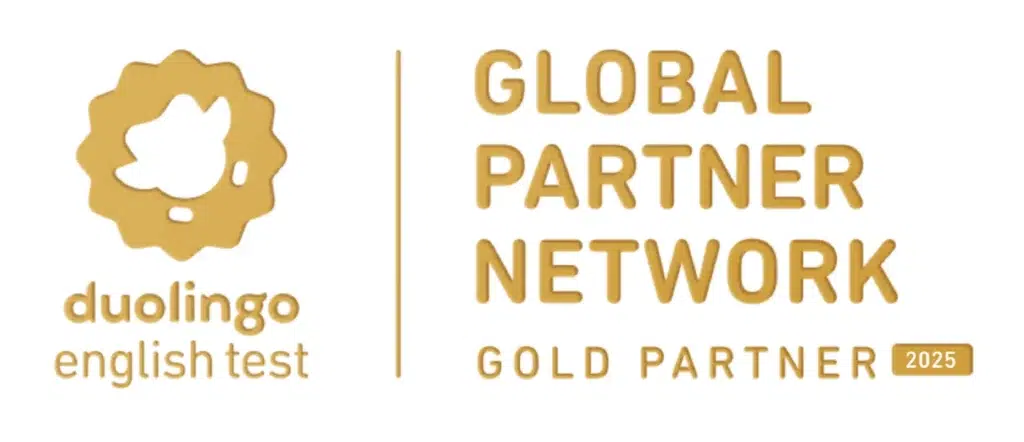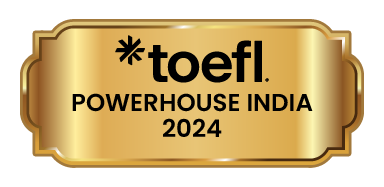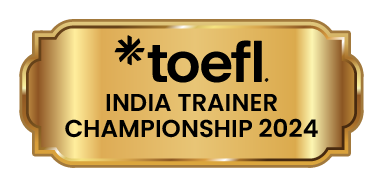Study In Germany
Table of content
Important Facts About Germany
- Most public universities in Germany have embraced tuition-free education in 2014. They all charge a small administrative fee.
- Education in German Universities is free of cost for both Germans and non-Germans.
- Every year, more than 5,600 international students complete their doctorate degrees.
- International students can work part-time during their studies to earn an extra income.
- Germany is located in the heart of Europe and shares borders with Denmark, Poland, the Czech Republic, France, Austria and Switzerland, Belgium, Luxembourg, and the Netherlands. The study VISA of Germany allows you to travel VISA-free anywhere in Schengen Area.
- Germany provides a range of affordable student housing options, including residence halls, shared apartments, and private accommodations. Many universities also offer assistance in finding suitable housing for international students.
- Germany holds a prominent position as a global leader in the world of books, annually publishing an impressive 94,000 titles.
- Germany is renowned for its contributions to research and innovation. International students can benefit from state-of-the-art facilities, research opportunities, and collaborations with leading experts in their fields.
- Germany has a robust economy and offers ample job opportunities for international students. Studying in Germany can enhance career prospects, with the country being home to many global companies and industries.
Why Study in Germany?
Germany has emerged as an ideal study abroad destination in recent years as it assures world-class education at low tuition fees, hosts popular universities offering a wide range of courses in English and offers excellent student support. While pursuing higher education in Germany, among other things, one can enjoy architecture like Gothic cathedrals, Roman ruins, and Renaissance castles, as well as breathtaking landscapes. Additionally, students can benefit from the excellent transport links to other European countries that give ample options for travelling and sightseeing other popular cities in Europe, broadening the overall study abroad experience.
1. Good Academic Recognition
Germany has a widely recognised education system wherein acquiring a degree from here will result in an impressionable academic background for international students. As per the QS World University Rankings 2024, over 49 German universities are highly-ranked. The top ones include:
| Universities | Ranking |
|
|
Ranked 37 |
|
|
Ranked 54 |
|
|
Ranked 87 |
|
|
Ranked 98 |
|
|
Ranked 106 |
2. Lets Students Study and Work Together
One of the greatest features of German universities is the ability to let students learn uniquely. Most of the course programs offered in Germany let students study and work simultaneously. This approach provides students with a better understanding of their course program.
When students put their knowledge to practice, it becomes easy for them to identify what needs to be done. This unique learning method continues to be in-built into students’ minds even after they complete their academic studies.
3. Open-Minded Culture
Another reason to fall in love with Germany is there is no discrimination. The country follows an open-minded culture where students can practice what they wish. Students are free to express their opinion and even live the life they wish without worrying about any policies or judgements.
For example, the CBS Business School in Germany has been voted the 3rd most LGBTIQ-friendly university in the country. This proves that Germany supports all types of international students and works to provide a better environment for them there.d
4. Travel Visa-Free
Students can now access the whole Schengen area VISA-free if they have their student VISA and valid residence permit to live and stay in Germany. The Schengen zone includes Europe, Austria, Croatia, Belgium, and more.
Students can take advantage of this travel as they will learn new cultures and languages needed to survive there. This will also expose them to learning new values that can be incorporated into their daily lives.
5. Cheaper Tuition Fees
When compared to other study-abroad destinations such as the UK, USA, etc., Germany offers affordable tuition fees. The country has two types of universities, private and public. The public university is state-funded, which means students can study for free here. However, with international students, a small fee has to be paid based on what is mentioned on the university website. The fee range could be between 500 €- 700 €/year.
On the other hand, for private universities, international students should pay the full tuition fees. The fees will vary accordingly based on the course program and university chosen. On average, private universities’ tuition fees can range between 25,000 €- 40,000 €/year.
Education System In Germany
Bachelor’s Programs
These programs in Germany are undergraduate degree programs spanning 3-4 years. They provide a comprehensive education in various fields of study, from arts and sciences to engineering and business. Bachelor's programs focus on building foundational knowledge, critical thinking, and practical skills. Students can engage in research, internships, and exchange programs. Many bachelor's programs in Germany have low tuition fees, making them accessible to international students seeking quality education.
Masters Programs
These programs in Germany are advanced academic degrees that typically follow a bachelor's degree. They offer specialized knowledge, advanced skills, and in-depth study in specific fields. Master's programs usually last 1-2 years and provide opportunities for research, internships, and practical training. Students can choose from various disciplines and benefit from the country's renowned educational institutions. Many master's programs in Germany have low tuition fees, making them attractive options for international students.
PhD Programs
These programs usually last two to five years. Students following the traditional model can work and submit their doctorate at their own pace with a chosen supervisor. In this case, they have to find a supervisor on their own. However, students enrolled on a structured PhD program get to work with a group of supervisors who help them with research. In the structured model, students can complete their courses within three years.
Types Of Educational Institutes In Germany
Universities: They impart theoretical knowledge and emphasize on research. German universities offer courses in a broad range of subjects. Some universities specialize in technology-related subjects and describe themselves as Technische Universität, TU or technical universities. Some universities especially focus on sports and medicine, such as German Sport University Cologne and Hannover Medical School.
Universities of Applied Sciences (UAS): They deliver practice-oriented academic education and offer degrees in specific fields such as economics, technology, media, and social media.
Colleges of Art and Music: These institutes train young architects, musicians, designers, and fine artists. Students have to demonstrate their special talent during the entrance exam.
Universities of Cooperative Education: These institutes offer dual programs which combine vocational training and academic studies. Students generally attend vocational training in the company. It may be an option for people who want to begin their careers early.
State-Funded and Private Universities: Many universities as well as colleges in Germany are state-funded as well as funded by the church. There are over 120 private universities in the country. These private universities charge high study fees.
Grading System in Germany
| GPA | Value | Description |
| 1 | Excellent | You completed the course with 90% and 100% marks. |
| 2 | Overall Very Good | You need to work more in specific areas. |
| 3 | Good | You have satisfactory marks, there is room for improvement. |
| 4 | Adequate | Your grades are satisfactory, but you need to work in several areas. |
| 5 | Sufficient | You have achieved marks sufficient to pass the exam. But the marks are poor otherwise. |
| 6 | Insufficient | You do not have sufficient knowledge to clear the exam. |
Many German universities use 5-point grading scale to mark achievements of student.
| GPA | Value | Description |
| 1-1.5 | Very good | You have completed the exam successfully but some minor improvements may be required in certain areas. |
| 1.6-2.5 | Good | You have exhibited a decent academic performance in the exam. |
| 2.6-3.5 | Satisfactory | Your performance was sufficient but improvements are required in many areas. |
| 3.6-4.0 | Sufficient | You have achieved the minimum score required to pass the exam. |
| 4.1-5 | Fail | You do not have sufficient marks to pass the exam. |
Actualize your studyiIn USA dreams by booking your free career counselling session with our expert counsellors
Top Courses To Study in Germany for Indian Students
German university courses are famous for two prime reasons: one; the country offers over 17,000+ academic programs that cater to the course interests of students globally. Second, courses offered in Germany cater to three aspects of learning, helping students build a strong academic foundation, critical thinking skills and professional skills. Another reason to pursue courses in Germany includes a more comprehensive course content range offered by leading universities here, which equips students with the skills and knowledge needed to ace any career role.
Pursuing a course in Germany has multiple benefits, such as:
Courses in Germany are designed to provide students with an easy transition from the academic learning environment to a professional one.
Students pursuing any course in Germany will find the blend of two aspects, building a strong academic foundation and receiving real-time guidance on what the current labour market expects from potential graduates.
Course learning in Germany makes use of an independent learning approach. Due to this, courses here are designed to help students challenge themselves and encourage them to find core interests and strengths they wish to explore.
All courses in Germany are taught by reputed tutors who have good experience working in the real world. This allows students also to gain the latest updates in their chosen field and mould their learnings accordingly.
Students prefer to study in Germany because the course options offered here are diverse. In fact, over the years, a few courses have seen a preferred demand amongst international students due to the growth of certain academic fields. Here is an overview:
- Top courses to pursue: Environmental Engineering, Automotive Engineering, Industrial Engineering are popular examples.
In-Demand course: Mechanical Engineering. - Top Universities: Technical University of Munich, Karlsruhe Institute of Technology and RWTH Aachen University.
- Top courses to pursue: Management, Business Administration, Project Management are popular examples.
In-Demand course: Management. - Top Universities: Munich Business School, Mannheim Business School and ESMT Berlin
3. Medicine
- Top courses to pursue: Nursing, Dentistry, MBBS are popular examples.
In-Demand course: Nursing. - Top Universities: University of Munich, Humboldt University of Berlin and University of Hamburg
- Top courses to pursue: Law, German Law, Law and Business are popular examples.
In-Demand course: Law. - Top Universities: University of Munich, Humboldt University of Berlin and Bucerius Law School.
5. Design
- Top courses to pursue: Architecture, Architectural and Urban Planning and Advanced Architecture.
In-Demand course: Architecture. - Top Universities: RWTH Aachen University, Technical University of Munich and Stuttgart University.
The courses offered in Germany aim to help students build a fruitful career path. This is one of the top reasons why student graduates find it easy to secure their dream job at leading organizations in Germany and across the globe.
Popular Universities to Study in Germany for Indian Students
| University | QS Top University Rankings 2023 | QS Top University Rankings 2024 |
|
|
49 | 37 |
|
|
65 | 87 |
|
|
59 | 54 |
|
|
118 | 98 |
|
|
131 | 120 |
|
|
141 | 119 |
|
|
158 | 154 |
|
|
147 | 106 |
|
|
189 | 192 |
|
|
169 | 213 |
|
|
275 | 246 |
Popular Universities in Germany That Require No IELTS/TOEFL
Below mentioned are some universities in Germany that require no IELTS and TOEFL. However, checking the university’s website for language proficiency requirements before applying is advisable.
- Braunschweig University of Technology (TU Braunschweig)
- University of Kaiserslautern
- Freie University of Berlin
- University of Giessen
- University of Siegen
- University of Koblenz and Landau
- Esslingen University of Applied Sciences (Hochschule Esslingen)
These universities accept the alternative scores of the following exams:
- Cambridge English Certificates or Cambridge English Qualifications
- TOEIC
- Medium of Instruction (MOI) certificate issued by your previous study organization
- Duolingo
Popular Cost-Effective Universities in Germany
The tuition fees for master’s at private universities may be up to €30,000 depending on the chosen course. Below mentioned are some of the popular, affordable universities in Germany that have a low fee structure:
| University | QS Top University Rankings 2023 | QS Top University Rankings 2024 |
|
|
49 | 37 |
|
|
65 | 87 |
|
|
59 | 54 |
|
|
118 | 98 |
|
|
131 | 120 |
|
|
141 | 119 |
|
|
158 | 154 |
|
|
147 | 106 |
|
|
189 | 192 |
|
|
169 | 213 |
|
|
275 | 246 |
Admission Process to Study in Germany for Indian Students
Applying to German institutions is easy, although it will require careful planning.
Step 1: Choose the desired university
You can check the German Academic Exchange Service (DAAD) database to see 2000 programs offered across German universities. Many of these programs are offered in English. There may be fewer choices for undergraduate studies, because most courses require German language proficiency.
Step 2: Check the admission requirements
Indian students and other international students applying to German universities must possess Hochschulzugangsberechtigung (HZB), which is an entrance qualification for higher education. You need to check if the chosen university recognizes the current qualifications. Also, check if you possess the required level of language proficiency.
Step 3: Organize your finances
A student must show proof of sufficient finances to cover their tuition fees and living costs in Germany.
Step 4: Apply and Wait for the Letter of Acceptance!
Students can use the official website, which is a centralised admissions portal by the German Academic Exchange Service (DAAD) to apply to universities. However, many German universities do not use this portal. In this case, you can apply directly on the university website. Once you submit the application, it may take several weeks before you receive your letter of acceptance.
Step 5: Purchase the Health Insurance
A student must buy health insurance to cover their healthcare costs during the study period. Health insurance is one of the mandatory requirements for a student VISA and residence permit in Germany.
Application Documents Required to Study In Germany for Indian Students





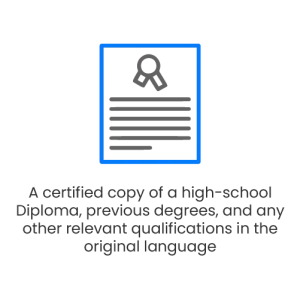

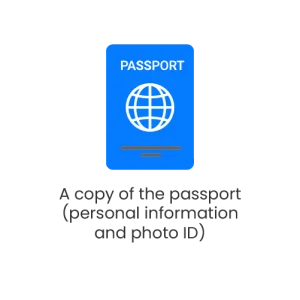




Eligibility Criteria to Study In Germany for Indian Students
For UG Courses in German Universities
It is essential to meet all the eligibility requirements for the UG Courses before applying to a German university.
- A student must be 18+ years at the time of application.
- A student must possess a higher secondary certificate.
- All undergraduate courses in Germany are taught in German. So, students need to submit German language tests and certificates like TestDaF (TDN 3, 4 or 5) (Test Deutsch als Fremdsprache), DSH II or III (Deutsche Sprachprüfung für den Hochschulzugang), Goethe-Zertifikat C2, telc Deutsch C1 Hochschule (The European Language Certificate), and DSD II (Deutsches Sprachdiplom Stufe II).
- Students who submit advanced placement (AP) testing results directly qualify for subject-restricted admission to UG courses.
- Students who have not taken AP tests are admitted to a preparatory course or assessment examination and they should have cumulative Grade Point Average (GPA) be a 3.0 or higher.
For PG Courses in German Universities
It is essential to meet all the eligibility requirements for the PG courses before applying at a German university.
- Students must possess a Bachelor’s degree lasting 3 years or more or a workload of 180 ECTS.
- The minimum GPA for pursuing MS in Germany is 7 and to gain admission to the world-class university, you must possess CGPA of 8.5.
- The field of study of master’s must be related to the bachelor’s degree. However, exceptions may occur for MBAs and so on.
- Students must possess English or German language certificates, which are recognized in Germany. TOEFL and IELTS are two common English language certificates accepted at most German universities. Students can also submit alternative English language test scores. Similarly, they can submit the German test scores of TestDaF (TDN 3, 4 or 5) (Test Deutsch als Fremdsprache), DSH II or III (Deutsche Sprachprüfung für den Hochschulzugang), Goethe-Zertifikat C2, telc Deutsch C1 Hochschule (The European Language Certificate), and DSD II (Deutsches Sprachdiplom Stufe II).
- Students applying for non-consecutive master’s programs like Master of Business Administration (MBA) or Master of Public Policy may be required to submit the details of practical work experience.
Intakes In Germany
There are two intakes in Germany – Summer Intake and Winter Intake
Winter Intake
This is the primary intake in Germany and most universities offer a broad range of courses during this time. This intake starts in September/October and ends in March. Here is the timeline for this intake.
- January: Research on courses and universities as per your career goals. Shortlist 8-10 universities in Germany and check their websites to see application requirements, course structure, due dates, and other information. If they meet your criteria, download their brochures, understand the fee structure, analyze your finance options, and so on.
- April – June: Appear for language proficiency tests and entrance exams. Sometimes, you may be required to retake the exams to meet the admission standards. So, plan accordingly and retake the exams.
- May – June: Prepare all necessary documents at least a month before the deadline for application. You can start preparing the statement of purpose, motivation letter, create letters of recommendation, and so on. Start applying if all these documents are already in place.
- August – September: Start the VISA process after receiving the acceptance letter. Organize your funds by applying for bank loans and scholarships.
- September: Book tickets and get ready to start your semester in Germany.
Summer Intake
This is the secondary intake in Germany and students who miss applying for the winter intake can go for this intake. However, there are few courses available at the universities for this intake. It starts in April and ends in August.
- April: Research courses and universities as per your career goals. Shortlist 8-10 universities in Germany and check their websites to see application requirements, course structure, due dates, and other information. If they meet your criteria, download their brochures, understand the fee structure, analyze your finance options, and so on.
- August – September: Appear for language proficiency tests and entrance exams. Sometimes, you may be required to retake the exams to meet the admission standards. So, plan accordingly and retake the exams.
- October – December: Prepare all necessary documents at least a month before the deadline for application. You can start preparing statement of purpose, motivation letter, create letters of recommendation, and so on. Start applying if all these documents are already in place.
- December – January: Revert on acceptance letters and appear for video interview if required. Pay confirmation fees to the university.
- January – February: Start the VISA process after receiving the acceptance letter. Organize your funds by applying for bank loans and scholarships.
- March – April: Book tickets and get ready to start your semester in Germany.
Cost of Education in Germany
Most universities in Germany are state-funded and assure high-quality education. They charge minimal fees to Indian students. Below is the average cost of studying in the country.
| Types of Expenses (Annual) | Expenses in Euro (€) |
| Tuition Fees (Public Universities) | €1500 for bachelor’s, master’s, and PhD programs |
| Tuition Fees ( Private Universities) | €26,000 - €40,000 for bachelor’s, master’s, and Ph.D. programs. Programs in business and management and engineering are the most expensive. |
| Costs of Accommodation | €760 / month |
Living Expenses for International Students in Germany
International students living in Germany must address living costs, including accommodation, food, transportation, and other miscellaneous expenses. These costs may vary across cities and depend on lifestyle choices. It is a misconception that living in Germany may be expensive. However, you will be surprised to know that the average living costs in Germany are lower than in many European countries. Here’s a quick overview of monthly living expenses in Germany for international students.
| Particulars | Monthly Expenses in Euros |
| Accommodation | €200 - €700 |
| Food and drinks | €150 - €250 |
| Transportation (Car, Public Transport) | €100- €200 |
| Health Insurance, Medication, Doctor’s Fees | €95 - €115 |
| Utilities (Telephone/Internet/radio and TV licence, postage) | €150 - €300 |
| Personal Expenses | €50 - €200 |
| Total Expenses | €745 - €1765 |
Types of Student VISA to Study in Germany
German Student VISA
This is the most important student VISA for international students who have been accepted in one of the German universities for full-time university studies or to apply for a Foundation course.
German Language Course VISA
It is also known as the Language Course VISA or Language Learning VISA and is designed for individuals who wish to study the German language intensively in Germany. This VISA is available to non-EU/EEA citizens who want to participate in a language course and enter Germany.
APS Process In Germany
APS (Academic Evaluation Centre or Akademische Prüfstelle) is a mandatory certificate that international students should have when applying for or submitting a German VISA application. The purpose of this certificate is to prove a student has submitted genuine documents for the VISA application.
APS is a joint institution between DAAD and the German embassy in Delhi (cultural department). Retrieving an APS certificate here simplifies the VISA process for international students since all eligibility criteria have been met. Students applying for a long-stay student VISA in Germany and graduated from an accredited university are eligible for an APS certificate.
The best time to apply for an APS certificate is in April or September/October. Here are the process steps:
- Verify your academic documents via APS.
- Create an account on the official website of APS.
- All academic and related documents should be submitted either via courier or in person.Ensure all documents are photocopied from the original and translated into English.
- Pay the verification fees, INR 18,000, to the APS bank account. At times, additional documents will be enquired.
- There will be a 20-minute interview process in either German or English or both. Notification for the same will be shared 10-14 days prior.
- Visit your APS account to see the status. The processing time is 3-4 weeks.
- If approved, you will receive five copies of the APS certificate via courier. The certificate validity is forever.
- Proceed further by applying for a German student VISA.
A set of crucial documents are required to complete your APS process. Based on your study degree, the documents can vary accordingly.
| 12th | Undergraduate & Graduate Degree |
| Printed and signed application forms with a recent passport-size photo (not more than 6 months ago) | Printed and signed application forms with a recent passport-size photo (not more than 6 months ago) |
| Copy of APS fee transfer receipt | Copy of APS fee transfer receipt |
| Copy of Aadhar with linked mobile number | Copy of Aadhar with linked mobile number |
| Copy of Passport | Copy of Passport (1st and last page) |
| Copy of 10th marks card and certificate | Copy of 10th marks card and certificate |
| Copy of 12th marks card and certificate. If not available, get a provisional certificate. | Copy of 12th marks card, certificate and admit (if present). |
| JEE main or advanced results, along with an admit card. (completed 12th with JEE) | Copy of Marksheet of all semesters attended |
| Copy of TestAS for both core and subject-specific | Copy of Bachelor's degree. If not available, get a provisional certificate (not older than 1 year) |
| Copy of Language certificate for German/English or both | Copy of TestAS result for core and subject-specific |
| Copy of all Master’s degree academic transcripts (if applicable) | |
| Copy of Language certificate for German/English or both |
How to Apply for a German Student VISA
Here is a step-by-step process to apply for a German student VISA.
- Locate the nearest German Consulate or Embassy in your country.
- Indian students can check the https://india.diplo.de/in-en/service/studentvisa/2004346 website to see the application requirements and set up a VISA interview.
- Set up the VISA appointment at the embassy.
- Carry all necessary documents during the VISA interview. Make the VISA application fee payment at the time of the interview.
Before appearing for the VISA interview, you must prepare 2 sets of the following documents.
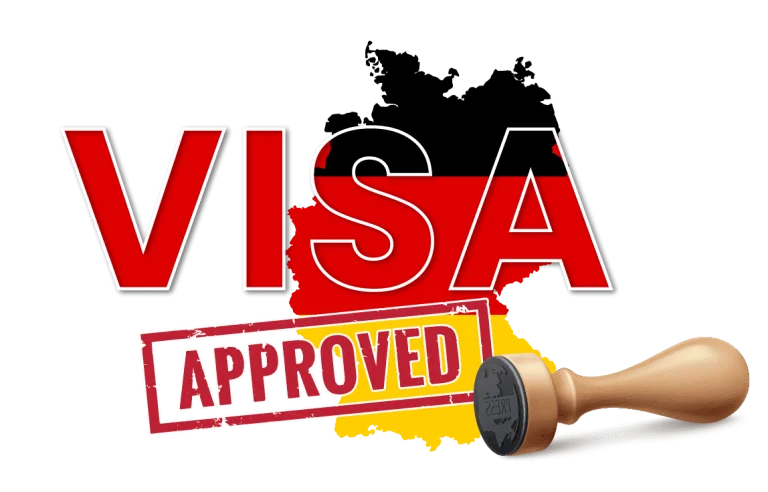
Important Documents to be Carried During the Student VISA Interview
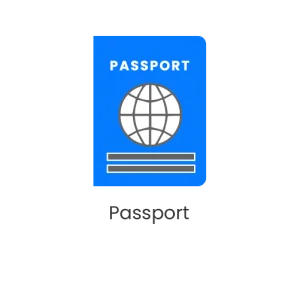







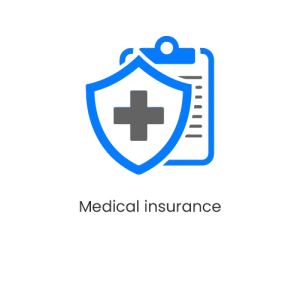



Best Student Cities In Germany
Some of the best cities to study in Germany for International students are:
Exams to Study in Germany for Indian Students
In Germany, bachelor programs are offered in German language, however, most international courses are offered in English language. Depending on your chosen course, you can submit the results of either of the following language proficiency tests:
German:
- TestDaF (TDN 3, 4 or 5) (Test Deutsch als Fremdsprache)
- DSD II (Deutsches Sprachdiplom Stufe II)
- DSH II or III (Deutsche Sprachprüfung für den Hochschulzugang)
- Goethe-Zertifikat C2 level
- telc Deutsch C1 Hochschule (The European Language Certificate)
English
- Educational Certificate of an English-Speaking School
- IELTS
- TOEFL iBT
- Cambridge English Certificate
Standardized Test Requirements :
- Graduate Record Examination (GRE)
- Graduate Management Admission Test (GMAT)
- TestAS
German Language Tests
Having a good command of German is essential for students pursuing German-taught programs. This helps in establishing communication with peers and professors in the German academic environment. Therefore, having a good command of German language is mandatory while pursuing your studies in Germany. You can demonstrate your language proficiency by submitting results of German language tests or completing a preparatory course.
Here are some widely accepted German Proficiency Tests:
DSH: It stands for Deutsche Sprachprüfung für den Hochschulzugang or German Language University Entrance Examination for International Applicants. This language examination undertaken by most international students wishing to pursue German-taught programs in Germany. This exam tests the linguistic capabilities of a student and the scores are shared with the admissions office of universities. Generally, the students are required to take this exam before the start of an academic year. They have to appear for both oral and written examinations. The standard DSH exam fee is €40 and €140 across universities. All universities in Germany accept the DSH certificate.
A student is awarded DSH-1, DSH-2, and DSH-3 certificates according to the percentage of marks scored by them. Here, DSH-1 is awarded to students scoring 57%, DSH-2 (67%), and DSH-3 (82%). DSH-2 and DSH-3 certificates are considered for university admissions. You can check the examination dates on your host university’s websites.
TestDAF: This stands for Test Deutsch als Fremdsprache and translates as the “Test of German as a foreign language”. This German proficiency test is conducted by TestDAF-Institut and is designed for non-German speakers. This certificate is accepted by all universities across Germany and you can take the test in any of the 500 test centers in 100 countries. The grades are usually marked in TDN3-5, which corresponds to language levels B2-C1 of the Common European Framework of Reference for Languages (CEFR). It covers reading and listening comprehension and speaking and writing. Every section is individually graded and sub-grades are indicated on the certificate. Most universities require students to earn TDN-4 in all parts of examination. The students with TDN 5 increase their chances of acceptance at universities. The TestDAF is usually conducted 6 times a year at test centers managed by TestDAF-Institut. The standard fee is €110 worldwide, and can be paid online.
GDS Certificate: This stands for Goethe Institut German Language Diploma and corresponds to language levels of A1 to C2 of the CEFR. Level A1 is for the beginner and C2 and above for the most advanced learners. The C2 certificate shows a level of language ability equivalent to that of an educated native speaker. The exam requires the examinee to comprehend complex texts and communicate fluently in spoken and written German.
Achieving a ZOP certification is a significant accomplishment and is accepted as proof of superior language proficiency when seeking admission to German universities (Hochschule). This test can be taken by non-German speaking students above 16. A student needs to undertake approx. 1,000-1,200 hours of German language tuition. The examination fee is € 355.
Language Certificate of the Education Ministers’ Conference (Level 2 with C2 in each of its sections): The Deutsches Sprachdiplom der Kultusministerkonferenz (DSDK) is an official German language certificate issued by the German education authorities and the Foreign Office (Germany). Upon completion, the certificate certifies language competency on levels B2/C1 or A2/B1 of the Common European Framework of Reference for Languages. The level DSD I equals to B1 level of the European Reference Framework for Languages and shows that a student has achieved a level of proficiency required to gain entry to a German university. The level DSD II equals to B2/C1 level of the European Reference Framework for Languages and shows that the graduate has reached the language level required to pursue classes in German at the university. These exams test the student based on reading, writing, listening, and oral communication.
telc Deutsch C1 Hochschule Certification (which is equivalent to TestDaF): The telc Deutsch C1 Hochschule demonstrates a candidate’s proficiency in German and readiness to pursue a program in a German university. This certificate is recognized by all universities and technical or applied sciences colleges in Germany. A student can take this test any number of times. The certification is valid for an unlimited time. It tests a student based on reading, listening, written and oral expression for targeted preparation. It is a standardized and centrally corrected examination that guarantees a fair assessment. The telc Deutsch C1 Hochschule shows a student’s ability to pursue research or higher studies at an advanced level at a German university. The Humboldt-Institut’s C1 German courses are thus the perfect preparation for the telc C1 Hochschule exam.
telc Deutch B1 Certification: Zertifikat Deutsch / telc Deutsch B1 is the right exam for students with basic German knowledge. It tests a student’s general language competence in reading, listening, and writing German. The certificate can be submitted during the German citizenship application. Zertifikat Deutsch für Jugendliche / telc Deutsch B1 Schule is recommended for students studying in schools while the telc Deutsch B1+ Beruf is recommended to students seeking admission to arts and music colleges in Germany. These exams are held throughout the year and you must register at least 30 days before the date. These tests are conducted at telc licensed test centers and the fees differ across these centers.
Österreichisches Sprachdiplom (ÖSD Zertifikat C1): The ÖSD Zertifikat C1 exam tests a candidate’s ability to communicate in various professional and social contexts around complex topics. This exam tests a student’s competency in written and oral exam. The written exam comprises reading, listening, and writing, whereas the oral exam comprises speaking tests. The tests emphasize on the accuracy, correctness, and contextual appropriateness. It is aimed at those learning German and wishing to study at a German-speaking university, with an altered version available for learners aged 14 and above. There are more than 200 exam centers worldwide and fees vary across countries. You can check the official website of OSD to see the test dates.
Government and Non-government Scholarships to Study In France for Indian Students
There are various scholarships that students can apply for to cover their tuition costs and living costs in Germany.
| Scholarship Name | Description |
| DAAD WISE | The German Academic Exchange Service (DAAD) offers these scholarships to students to pursue bachelor’s, master’s, and PhD programs in Germany |
| Erasmus+ | This scholarship is awarded by the European Commission and covers living costs when participating in an exchange program. |
| Heinrich Böll Foundation Scholarships in Germany | The Heinrich Böll Foundation awards approximately 1200 scholarships annually to students to pursue bachelor’s, master’s, and Ph.D. programs in Germany. Non-EU students receive € 850 per month for tuition fees and additional charges. PhD students may receive €1200 per month for tuition fees and mobility allowances. |
| DeutschlandStipendium National Scholarship Programme | This scholarship program provides financial support to high-achieving students from India and other countries. The scholarship is modelled on the principle of public-private partnership. Businesses, private individuals, and foundations sponsor €150 per month and the Federal Government provides €150. In total, €300 per month is offered to top-class talent. Students are awarded these scholarships by universities. |
| Konrad-Adenauer-Stiftung Scholarships | Students interested in politics can apply for these scholarships. This scholarship is offered to students who want to complete undergraduate and postgraduate studies in the country. |
| The Friedrich Ebert Stiftung Scholarship | This scholarship is provided to students who are pursuing a doctorate at a state-funded or recognized university of applied sciences. Excellent German language skills is one of the key eligibility requirements for this scholarship. |
Types Of German Post-Study VISA
- Indian students can apply for a post-study work permit of 18 months to look for a job matching their skills. Here are the type of post-study work visas they can apply for.
- Temporary Residence Permit (while seeking a job): This work permit allows university graduates to work part-time or full-time in the country without any additional formalities. Students must apply for this VISA while they are in the university.
- Job Seeker VISA: This VISA is more appropriate for students who have returned to their home countries after studies and wish to come to Germany for career opportunities. The VISA is issued for a short time of six months.
- Temporary Residence Permit: As soon as the student finds a job corresponding with educational qualifications, they can apply for a temporary residence permit or EU Blue Card.
- German Residence Permit: This allows Indian students and other foreign nationals to live in the country for the period indicated in their employment contract. The residence permit can be extended as many times as required.
- EU Blue Card: This card allows highly skilled Indian students and other foreign nationals to work in Germany and other EU states. Graduates from STEM or IT fields can apply for this card.
- Temporary Residence Permit (self-employment): Any non-EU student who wishes to start a business in Germany after graduation can apply for this VISA.
- Permanent Residence Permit: This allows foreign nationals to come and settle in Germany. It allows them to work and live in the country with their families without any restrictions. Students who have held temporary residence permit for at least two years can apply for this permit.
Post Study Work Jobs In Germany
On-Campus Jobs:
- Library Supervisor
- Research Assistant
- Tutoring Assistant or Tutor
- IT Support
- Campus Tour Guide
- Administrative Assistant
- Student Ambassador
Off Campus Jobs
- Work at Trade Fair
- Small jobs in the Media sector
- Bartending
- Cashier
- Babysitter
- Waiter or Waitress
- Courier Services
Popular Career Prospects For International Students In Germany
A student pays an annual tuition fee of €1500 while pursuing bachelor’s, master’s, and PhD courses in German public universities. However, this average annual spend would be higher at private universities where the tuition fees cost anything above €25,000, which, when combined with living costs, would be even higher. Students who complete a bachelor’s or master’s degree in finance, medicine, and engineering can bag the highest-paying jobs. The average highest salary is €55,475 per annum.
Listed below are a few starting salaries of jobs related to the popular fields of study.
| Job Description | Average Annual Salary (Euros) |
| Banking | € 62,500 to € 179,000 |
| Financial Services | € 54,700 to € 157,000 |
| Teaching | € 54,700 to € 157,000 |
| Computer Science and IT | € 45,700 to €72,000 |
| Electrical Services | € 41,160 to €75,000 |
Study in France FAQs
Students can look for jobs at portals like Expatica or EURES, public job portals and recruitment agencies.
Germany's high-paying industries include engineering, banking and financial services, IT and computer science, business management, automotive, engineering and telecom.
Yes, non-EU/EEA students can work in Germany with their studies for 120 full days or 240 half days per year.
Students can earn up to €450 per month on student jobs, and they don't have to pay any tax for earning up to this amount.
If you possess a residence permit and the duration of your studies is expected to be more than a year, then you can bring your family. However, you may be required to showcase your financial adeptness to support your family in the country without burdening the social services system.
No, you may not be required to submit German language proficiency certificates in this case. However, a working knowledge of the German language will help you in a big way.
Duales Studium is a program where Indian students can study theories at a university and practice them at companies that have partnered with these universities for skill development. German study visa allows students to work 120 days a year when the semester is in progress. Leveraging this, a student can be part of Duales Studium program.
TU9, established in 2003, is the union of nine leading Institutes of Technology in Germany.
- TU Berlin
- TU Braunschweig
- RWTH Aachen University
- TU Darmstadt
- TU Dresden
- Leibniz Universität Hannover
- Karlsruhe Institute of Technology
- TU München
- University of Stuttgart
No, there is no age limit to study in Germany. The country is also known to have a reputation for having the continent's oldest graduates (on average, 28 years old).

